When there’s only space for one meat-free option on the menu, chefs often now ditch dairy for vegan alternatives. Is this the end of veggie dining?
Last modified on 2021 May 20
–
The recent explosion in vegan food has not been without pushback. Mainly from bolshily indignant meat-eaters who take it as a personal affront. But could a far more peaceable group, vegetarians, also be finding all that vegan energy a bit, well, irritating?
“I don’t think vegans have ruined everything for vegetarians. It’s down to lazy restaurateurs, I guess – doing one option to cover both,” says Ruth, a 35-year-old professional from Manchester. “In the old days you’d get a goat’s cheese salad and now, maybe, that’s been replaced by a jackfruit burger. As a big fan of cheese, I think people should be more adventurous with their menus and provide more choice. Don’t forget the cheese-lovers, I say.”
Are plant-based options really supplanting vegetarian dishes? In a straw poll of 15 chefs and restaurant owners, seven said they had observed the trend, with four saying that they had to varying degrees veganised their meat-free dishes. After mentioning it to an initially sceptical Sven-Hanson Britt, the chef-owner at London’s Oxeye, he tweeted later: “It’s real. I’m seeing it everywhere now … the death of the vegetarian.”
Death is overstating it. Vegetarian options are still many and varied. For now. But, undoubtedly, in terms of how it is perceived – hip, creative, a convenient coverall when you need to offer a meat-free option – chefs are smitten with vegan food. A 2019 Lumina Intelligence report found that the number of vegetarian and vegan dishes was growing on menus, but vegan options were increasing 29% faster. On the industry website bighospitality.co.uk, references to vegan food outstrip vegetarian by more than four to one.
Headline-worthy stories of exciting new vegan food concepts abound. Not least the news, this month, that the three-Michelin-star New York restaurant Eleven Madison Park is to reinvent itself as vegan. As the writer-campaigner Michael Pollan, he of the mantra “eat food, not too much, mostly plants”, told the Wall Street Journal: “This is a big deal.”
–
From Bordeaux’s Ona, which in January became the first Michelin-starred vegan restaurant in France, to London’s high-end Gauthier Soho, which will reopen as a plant-based restaurant in June, there is, for the first time, a cluster of influential vegan restaurants emerging that will likely turbo-charge interest in dairy and meat-free cooking among professional chefs. In contrast, while last week the Vegetarian Society celebrated the 29th National Vegetarian Week, hot new vegetarian restaurants are rare.
“It’s not that vegetarian has become cool or uncool, there just doesn’t seem to be an opinion about it. It’s forgotten,” says Andrew Dargue, who until recently ran the vegetarian London restaurant Vanilla Black, where he created dishes such as falafel custard and vegan savory doughnut with chile jam. “Vegetarianism’s kind of disappeared,” he says. “It’s straight to vegan.”
–
Dargue is about to open a cookery school in Somerset that will be 70% devoted to vegan cuisine. “Creativity didn’t move on,” he says of vegetarian cooking, which he believes has failed to shake the worthy-but-dull image that has dogged it since the 1970s: all brown rice, lentils and limp quiches. For Dargue, the discipline of vegan food is much more exciting: “It forced us to think,” he says.
Elite Bistros, a group of six restaurants in the north-west of England, have recently made their one meat-free main course vegan (although they still serve vegetarian starters). The decision is partly logistical: for a restaurant less emotionally invested in meat-free culture, squeezing a vegetarian dish on to a short menu of six mains would create extra work and food waste.
But also, in limiting the menu to one vegan main course, Elite Bistros’ executive chef Richard Sharples says he can focus on creating one brilliant dish. When he started out in kitchens a decade ago, “I wanted to put butter in everything,” he says. “But we’ve found different ways to make delicious things without dairy. Necessity created more creative cooking.” These dishes include roast hispi cabbage with smoked potato puree, gremolata and pumpkin seeds.
–
That excitement is spreading. “I’ve not seen this creative energy in the kitchen before,” says James Lewis, the marketing director at Gauthier Soho, where a seven-course Les Plantes menu costs £75. “The industry is still pushing the same old meat and fish around. By contrast, we’re the pioneer. Every time the chefs crack the [vegan] code on creme brulee, meringue, cream sauces, there’s a cheer.”
Vergine Maria, an imminent vegan spin-off from the Ealing pizzeria Santa Maria, is an ethical passion project. But, says the vegan co-owner, Pasquale Chionchio, it is also a “fun” break from creating traditional Neapolitan-style pizza: “We’ll do things we’d never dare in Santa Maria: pizza with BBQ ‘chicken’, mac-and-fake-cheese, chile non carne …”
–
In that context, and with the cost of dairy ingredients soaring, creating dedicated vegetarian dishes is an expensive, labor-intensive hassle. “It’s so much more work for an already busy kitchen,” says Andrew Chongsathien, who is about to open a fixed site for his Cardiff street food brand, Brother Thai. Concerned by the impact beef farming has on global heating, Chongsathien is supplementing his popular sticky beef rotis with a menu that is 40% vegan. “Why complicate things when you can create an equally delicious vegan dish? I’m lucky; Thai food doesn’t have much dairy.”
At London’s Caribe’, chef-owner Keshia Sakarah’s tendency to serve vegan dishes is a natural representation of the Caribbean food she champions. Plant-based food is “very much part of the diet”, she says, it’s more that people don’t realise it. “If people’s point of reference is curry goat and jerk chicken, they’re going to be like, ‘What meat-free stuff do you have?’” The answer is: “There’s loads.”
There is a commercial imperative to increase vegan options, too. In 2019, the Vegan Society calculated there were 600,000 UK vegans. But a 2020 poll for the price comparison site finder.com put that figure at 1.5 million. In 2018, Waitrose’s analysis of transactions across British supermarket chains suggested one-third of Britons were eating less meat. Given that 80% of the vegan dishes sold in restaurants are eaten by flexitarians, rather than by vegans, according to the Lumina Intelligence report, that audience is difficult to ignore.
–
Brighton’s Curry Leaf Cafe restaurants are now 50% vegan, which has mainly been achieved by using oil instead of ghee in vegetable dishes. They still serve vegetarian paneer curries, but, says the owner Euan Sey, “50:50 makes sense commercially. We get a lot of love from the vegan community. Last summer, we came up with a vegan naan recipe pretty much identical to our previous yoghurt-based one. It’s a big USP.” [unique selling point]
Do vegetarians ever complain about the disappearing dairy? “We had a few negative comments about the soy yoghurt raita. It has a different flavor to Greek yoghurt,” says Sey. “But most people seem ambivalent.”
Dismayed vegetarians can take heart in their numbers. The finder.com survey found Britain has 3.1 million vegetarians, double the number of vegans. Many restaurants continue to value butter and cheese in meat-free dishes (“Dairy is life,” maintains Mary-Ellen McTague at The Creameries restaurant in Manchester) and certain meat-free restaurants, such as Brighton’s Terre à Terre, continue to innovate with dairy in dishes such as ginger-braised halloumi bao buns or a twice-baked cheese fondue soufflé. “I don’t think vegetarian cooking failed to modernize,” says the co-owner Amanda Powley. “It continues to evolve.”
–
Given those numbers, and with vegetarianism still predicted to grow, will mainstream restaurants eventually re-engage with veggie cooking? Daisy, 34, a vegetarian from Cambridge, hopes so. She isn’t irritated by veganism: “It means we’ve got way more options. In the 90s, you were lucky if the chef could do you an omelette,” she says. But the issue is that “the meat diet is still catered for 90%. That’s the annoying thing. Maybe that should be looked at.”
–
–









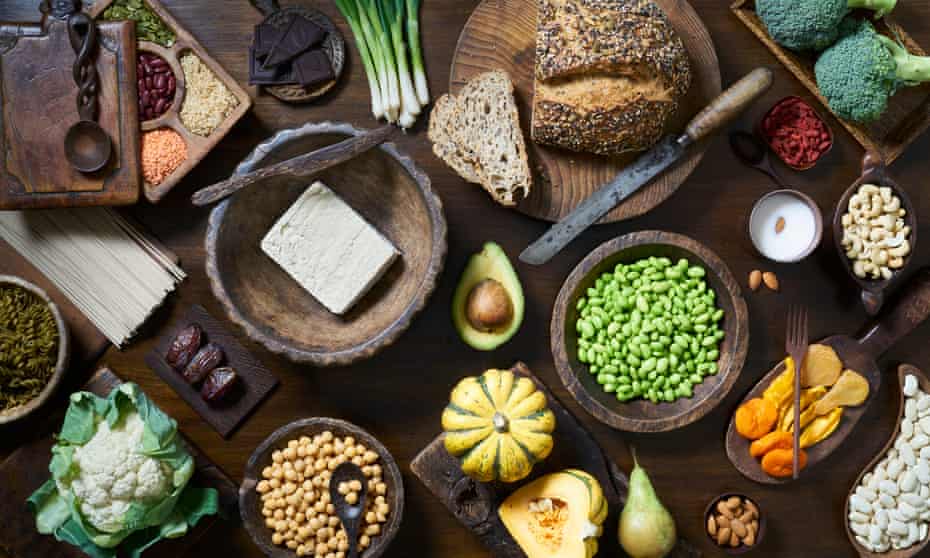
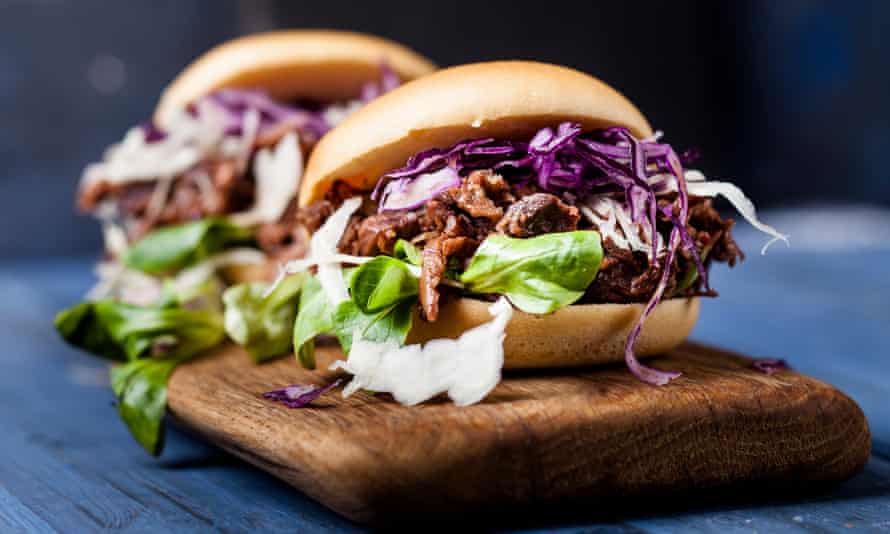
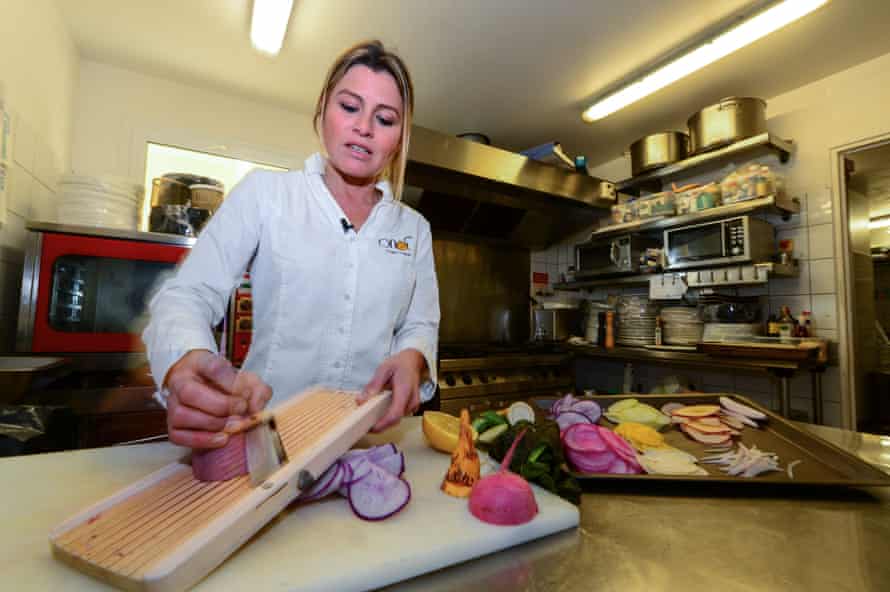
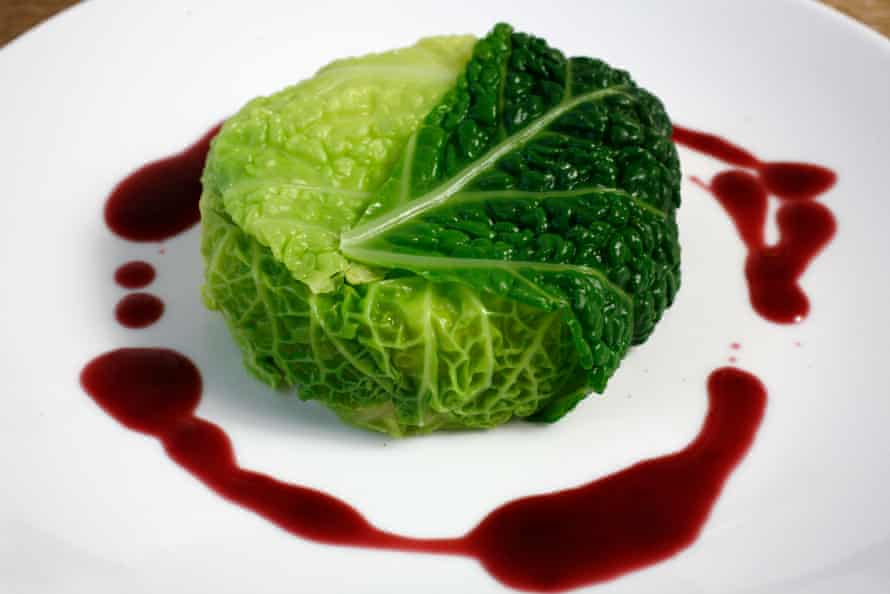
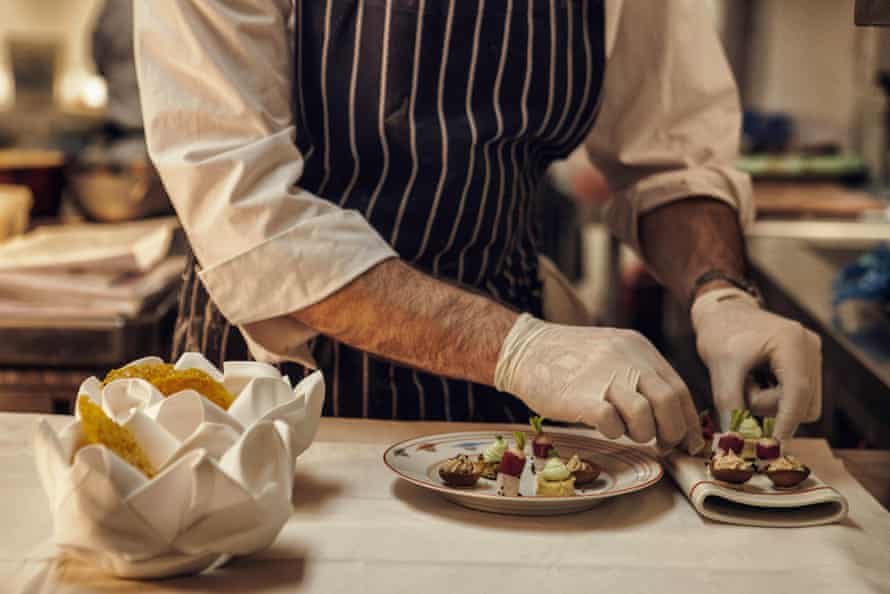
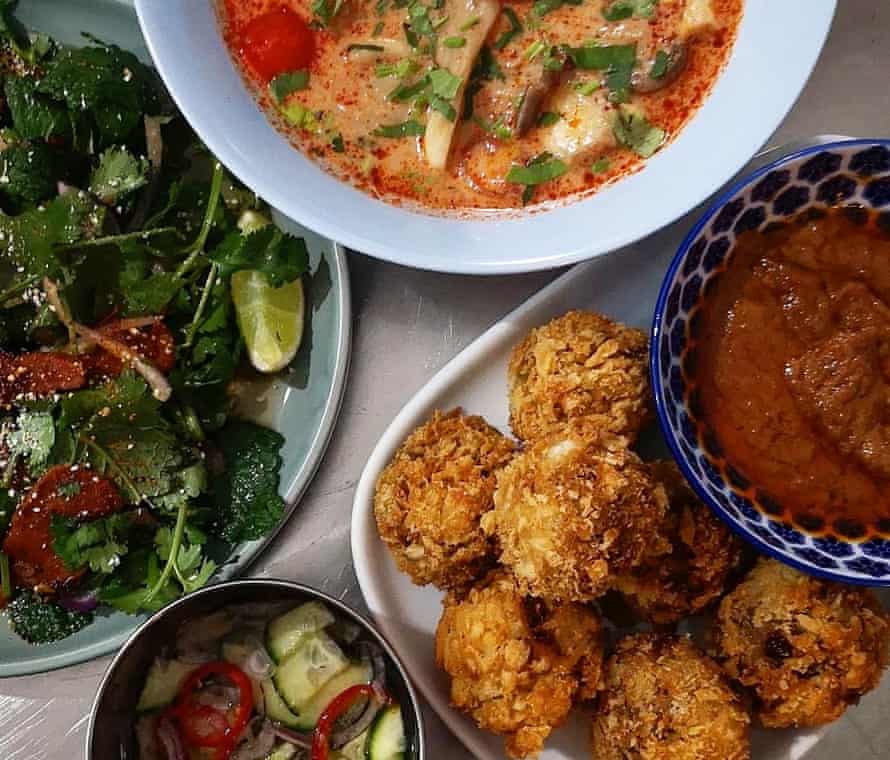
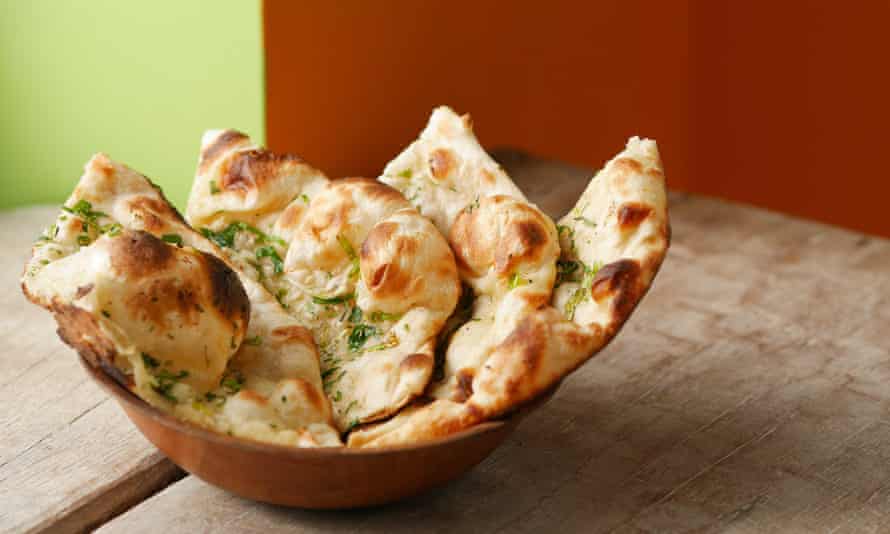
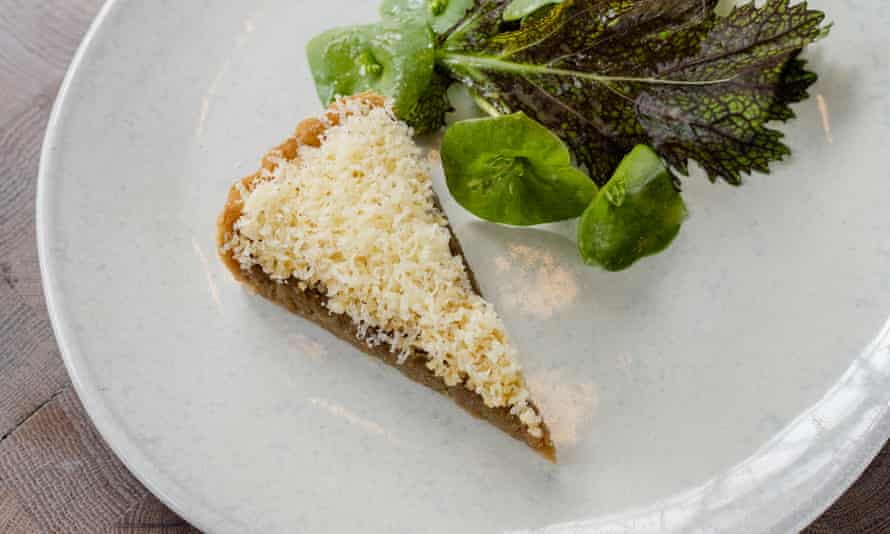




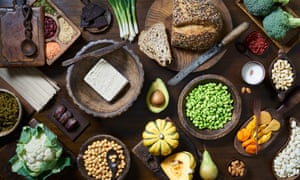
Comments (525)
(This discussion is closed for comments)